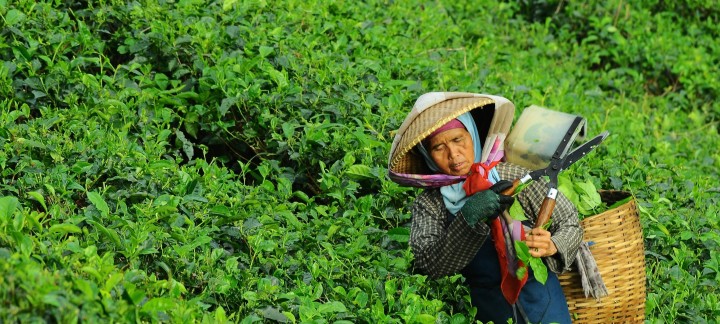Most people would be forgiven for thinking that slavery was eradicated in the early 19th Century, but the sad truth is that modern slavery still exists in our age.
Modern slavery is a broad term used to describe the coercion and exploitation of victims for personal or financial gain. It can include human trafficking, slavery, servitude, debt bondage, forced marriage, the most severe forms of child labour, and forced labour.¹
The 2018 Global Slavery Index cites that an appalling 40.3 million people worldwide are trapped in modern slavery, mainly in the Asia-Pacific region. Of those enslaved in this region, 70 per cent are women and young girls.²

With dignity of life, justice for all, preferential treatment of the poor, and love and compassion undergirding Mercy Health’s mission to bring God’s Mercy to those in need, joining the fight against modern slavery is imperative for our organisation.
In partnership with the Australian Catholic Anti-Slavery Network (ACAN), Mercy Health has published a Modern Slavery Statement, outlining our commitment to fighting modern slavery.
In February 2020, Mercy Health General Counsel Simon Cooke formed a Modern Slavery and Ethical Purchasing Working Group, comprising of representatives from different business units across our organisation. In taking the lead role in Mercy Health’s campaign against modern slavery, Simon says, “I was inspired by the example of the Institute of the Sisters of Mercy of Australia and Papua New Guinea, who are working against human trafficking, which is a form of modern slavery.”
Meeting quarterly, the working group assesses modern slavery risks in Mercy Health’s operations and supply chains, and decides on what actions to take.
Being a large and complex organisation, Mercy Health has a wide range of suppliers that service our organisation, from medical equipment to food and stationery supplies. While a great number of our suppliers are from Australia and New Zealand, many also manufacture in countries including the United States of America, Germany, Turkey, Japan, China, Malaysia, Mexico, Columbia and Sri Lanka.
Joining the fight against modern slavery is imperative for our organisation
To assess and limit the risk of modern slavery in our supply chains, a number of measures have been implemented, such as a Modern Slavery Policy for Mercy Health employees and suppliers; a Supplier Code of Conduct Policy for employees and suppliers; and a detailed modern slavery questionnaire, which is designed to identify direct supplier risk as well as risk in at least second-tier supply chains.
Mercy Health Group Manager Procurement, Contracts and Supply Chain Mark Young says, “These and other steps we have taken, have helped us to identify and work with businesses who share our commitment to ethical sourcing and want to work towards ending modern slavery in the supply chain. It is not about terminating arrangements with suppliers but working with them to help them identify and remove risks and issues from their supply chain and making positive change for those impacted by modern slavery.”
One such company is Winc, who supplies Mercy Health with stationery, furniture, hygiene and technology products. Winc CEO Peter Kelly says, “As one of Australia’s largest suppliers of workplace solutions, Winc takes its responsibilities in ethical sourcing and conduct seriously. We are working with our suppliers to positively influence social and ethical performance in workers’ lives in our supply chain, the communities we operate in and our planet.”
Simon Cooke says, “It is important that organisations like Mercy Health live their values. Our commitment to work against modern slavery should inform our choice of business partners and set expectations for how those businesses will conduct themselves.”
- Australian Government Department for Home Affairs, 2021, Modern slavery, viewed Monday 20 September, 2021 <homeaffairs.gov.au/criminal-justice/Pages/modern-slavery.aspx>.
- Australian Catholic Anti-Slavery Network, 2021, What is modern slavery? viewed Monday 20 September, 2021, <acan.org.au/modernslavery>.
Last reviewed October 29, 2021.



